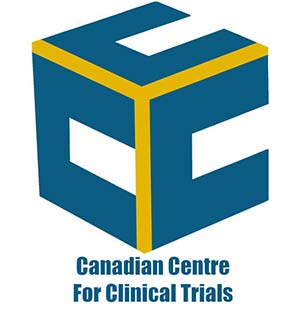Study examining how mental illness is diagnosed using patient self-reports of symptoms in comparison to current Obsessive-Compulsive Disorder diagnosis.
Mental illness is a health problem characterized by changes in the way a person thinks, feels, or behaves that can cause distress to the individual. It is considered one of the most common health problems in Canada, affecting one in five Canadians in a given year and around 50 percent of the population have or had experienced mental illness by the age of 40. Common types of mental illnesses or disorders include anxiety, depression, eating disorders, and obsessive-compulsive disorder (OCD). Individuals with OCD experience either obsessions (recurring unwanted or disturbing thoughts), compulsions (repetitive behaviours performed to reduce or alleviate anxiety), or both.
Obsessive-compulsive disorder and other mental illnesses are diagnosed by a mental health professional, an expert considered to possess the knowledge and experience necessary to accurately diagnose the mental illness. Mental illnesses are diagnosed based on patients meeting certain criteria, consisting of a list of symptoms associated with a particular disorder, established in the Diagnostic and Statistics Manual (DSM-5). Several research studies have highlighted concerns about the current method in using established criteria to diagnose mental illness and suggest a need for revision. This is because many patients exhibit symptoms that are shared by more than one type of mental illness.
A new study, led by researchers from Trinity College Dublin, looks at an alternative way in diagnosing mental illness. The study, published in JAMA Psychiatry, examined whether compulsive behaviours self-reported by the patient would have a stronger association with reductions in goal-directed planning than a mental health expert’s diagnosis of OCD. Goal-directed planning describes a person’s ability to regulate their habits or behaviours and is found to be reduced amongst individuals with OCD.
The study recruited 285 participants, diagnosed with OCD, generalized anxiety disorder (GAD), or both from the United States between 2015 and 2017. Participants diagnosed with GAD were assigned as the control group because individuals with that disorder do not display compulsive behaviour. In this study, participants were given a telephone interview that was conducted by a mental health professional to diagnose their disorder.
The participants undertook cognitive testing that was administered over the internet and completed online assessments that involved self-reporting their symptoms. Their performance in the study was measured by assessments of their goal-directed planning, cognitive flexibility, and abstract reasoning. Cognitive flexibility describes a set of processes in the brain that help control a person’s thoughts and habits. Follow up testing was conducted to assess the reproducibility of the results. During the follow-up session, data were collected from 110 participants.
The results of the study revealed a stronger significant association between reductions in goal-directed planning and patient self-reports of compulsive behaviours than OCD diagnosis that was made by a mental health expert. The findings suggest the study will have implications on how mental illness is diagnosed and whether the diagnosis will closely reflect the underlying biology of the brain. The authors believe future research studies will involve observing a larger sample of persons showing a broader range of symptoms that is representative of more than one type of mental illness.
Written by Ranjani Sabarinathan, MSc
References:
Gillan CM, Kalanthroff E, Evans M, et al. (2019). Comparison of the Association Between Goal-Directed Planning and Self-reported Compulsivity vs Obsessive-Compulsive Disorder Diagnosis. JAMA Psychiatry. doi:10.1001/jamapsychiatry.2019.2998
New research raises important questions on how mental illness is currently diagnosed. (2019, October 9). Retrieved from https://www.eurekalert.org/pub_releases/2019-10/tcd-nrr100919.php
Image by Wokandapix from Pixabay



